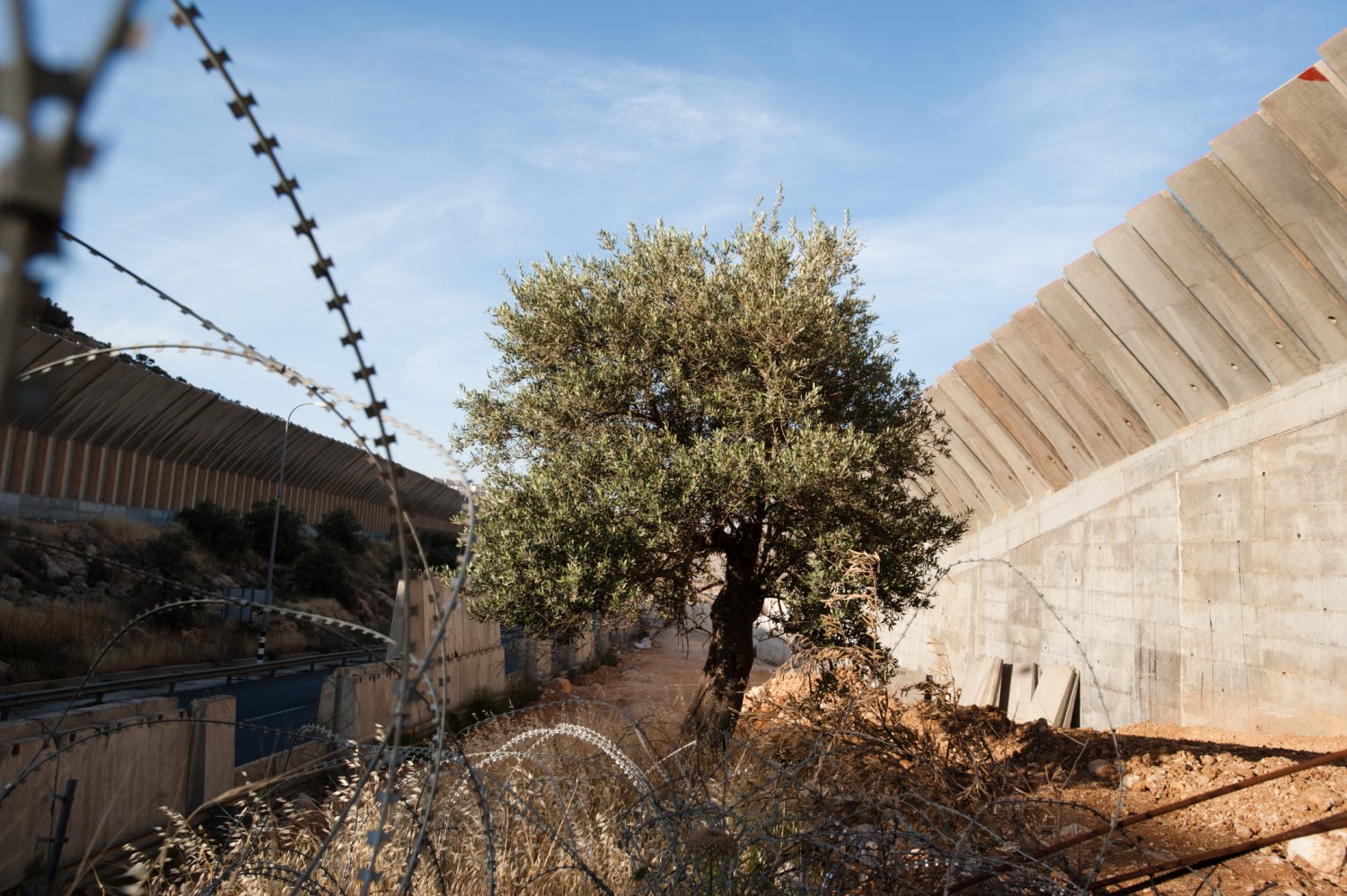By Magid Magid
The climate movement across Britain and Europe is confronting a profound moral and political challenge in light of Israel’s recent and most devastating assault on Gaza. This violence is not a sudden or isolated event—it is part of a continuous campaign of occupation and oppression that has persisted for decades and escalated significantly over the past 420 days. Since the intensification of hostilities in October 2023, the situation in Gaza has reached unprecedented levels of devastation, with global experts and human rights organisations, including Amnesty International, classifying recent actions as genocide.
The ethical imperative to oppose such brutality is unequivocal. For the climate justice movement, the connection between environmental degradation and systemic oppression in Palestine demands urgent attention. The occupation of Palestinian land is not only a humanitarian crisis but also an environmental catastrophe, with profound implications for global justice.
Environmental Colonialism in Occupied Palestine
Environmental degradation in Palestine is not merely an unfortunate consequence of occupation—it is a weapon of control. Israel’s policies have inflicted severe harm on Palestine’s ecosystems and agricultural economy. For instance, the water crisis in Palestine is deeply rooted in systematic inequalities. Israel controls 85% of the water resources in the region, leaving Palestinians with minimal access to clean and sufficient water. According to United Nations Economic and Social Commission for Western Asia, this disproportionate allocation of water undermines Palestinian agricultural practices, prevents economic development, and increases dependence on Israeli infrastructure.
Similarly, Israel’s consistent destruction of olive trees—cultural and economic symbols for Palestinians—is another stark example of environmental colonialism. Over 800,000 olive trees have been uprooted since 1967, with intensified efforts over the past 420 days, impacting livelihoods and removing a crucial symbol of resilience. In Gaza, the situation is even direr. Toxic munitions, such as white phosphorus used during Israeli military operations, have polluted the soil and groundwater, making agricultural activity almost impossible and exacerbating public health crises).
These deliberate acts of environmental destruction are a form of ecological warfare, aimed at eroding the Palestinian people’s ability to sustain themselves on their own land.

The War Against Land and People
As the climate movement has gradually become attuned to the centrality of migrant justice and of fighting violent border policies to its own campaigning, so too should that be extended to its logical conclusion: supporting the struggle of Palestinians against the matrix of domination that governs land and life in occupied Palestine, both in war and during times of ‘peace’.
The occupation of Palestine represents one of the clearest examples of how land, people, and environmental justice intersect. The Israeli government has implemented policies that systemically destroy the natural resources Palestinians rely upon, while simultaneously subjecting them to violence and displacement.
In the West Bank, the apartheid wall, spanning over 700 kilometres, slices through Palestinian communities and agricultural lands. This wall not only physically isolates Palestinians but also acts as a mechanism of environmental apartheid, denying them access to fertile land and water sources. These policies, which have intensified in enforcement over the last 420 days, are echoed globally, where militarised borders and exclusionary land policies disproportionately affect marginalised communities (Middle East Monitor).
Fishing off Gaza’s coast is another poignant example. Palestinians are restricted to a narrow six-nautical-mile zone, severely limiting their ability to sustain their fishing industry, a cornerstone of Gaza’s economy. This is exacerbated by the repeated destruction of fishing boats and infrastructure during military offensives, especially during the ongoing siege that began over 420 days ago. As Middle East Eye reports, this restriction is part of a broader strategy to erode Gaza’s self-sufficiency.
These instances reveal the inseparable nature of the climate crisis, environmental justice, and the Palestinian struggle for liberation.
European Complicity in Oppression
European governments have not only remained complicit in Israel’s policies but have also actively supported them. Despite international condemnation of Israel’s actions, European leaders continue to provide military, economic, and political backing. Germany, for example, remains one of the largest exporters of arms to Israel (Euronews) and including the EU’s €18 million funding to support Israel’s ‘strategic communication and public diplomacy’: effectively rewarding its genocidal brutality.
In Britain, both major political parties have aligned themselves with Israel from the beginning of the siege, with then Prime Minister Rishi Sunak affirming unwavering support. The current Prime Minister Keir Starmer has also publicly condemned protests against Israeli aggression, making clear that no significant policy shift will occur under this Labour government (The Independent).
Across Europe, solidarity with Palestine has been systematically suppressed. In Germany, authorities have banned Palestinian solidarity organisations and demonstrations, citing vague accusations of extremism. France went so far as to outlaw pro-Palestine protests altogether, sparking widespread criticism of its authoritarian crackdown on free expression. The UK, meanwhile, deployed new anti-protest laws, originally designed to target climate activists, to silence dissent on Palestine.
These actions exposed a chilling trend across Europe: a growing authoritarianism that targets both climate justice movements and Palestine solidarity campaigns. This complicity not only emboldens Israeli aggression but also reflects Europe’s broader history of upholding systems of oppression and colonialism.
The Case for Solidarity
The struggle for Palestinian liberation is inherently tied to the global fight for environmental and climate justice. The climate movement must recognise that the same forces driving environmental destruction—colonialism, militarism, and racism—are at the heart of the oppression faced by Palestinians.
Palestine serves as a microcosm of how environmental injustice and systemic violence intertwine. As Gaza’s lands are poisoned and its resources depleted, Palestinians are forced into further reliance on external aid, creating cycles of dependency and erasure. This mirrors the exploitation of Global South communities by industrialised nations, where climate-induced resource scarcity often exacerbates inequalities.
The climate justice movement has made strides in recognising the centrality of migrant justice and border abolition in its advocacy. Yet it has largely failed to apply these principles to Palestine. This oversight weakens the movement’s moral and political foundation. To truly address the climate crisis, activists must confront all systems of domination, including the occupation of Palestine.
Moving Forward
The sirens should be sounding loud and clear for climate justice campaigners: the battle against Palestine solidarity is part and parcel of the Europe-wide shift towards authoritarian repression, and the racism directed against Palestinians, Arabs and Muslims in Europe reflects the grotesque hierarchy of humanity that Europe has long sought to uphold.
The climate movement cannot afford to remain neutral or silent on Palestine. True climate justice requires dismantling the structures of oppression that enable environmental destruction, militarisation, and colonialism. Supporting Palestinian liberation is not a distraction from this work—it is an essential part of it.
As the climate movement continues to expand its focus to encompass issues of social justice and human rights, it must fully embrace the Palestinian struggle as central to its mission. This involves amplifying Palestinian voices, challenging European complicity, and demanding accountability for environmental and human rights violations.
At a time when the world is grappling with unprecedented climate challenges, the lessons from Palestine are clear. The fight for environmental justice is inseparable from the fight against colonialism and racism. Injustice anywhere, whether in the form of poisoned lands in Gaza or rising seas in the Pacific, threatens justice everywhere.
The climate movement has long promised to be the defining battle of our generation. To fulfil this promise, it must act with courage and clarity, recognising Palestinian liberation as a cornerstone of global justice. By doing so, it can transform its vision of a just and sustainable future into reality.

Transeuropa Festival 2024 © Claudia Correnti
Text
Text